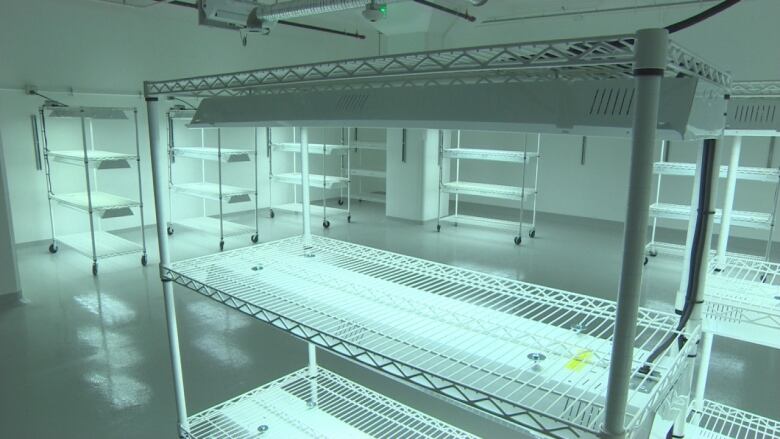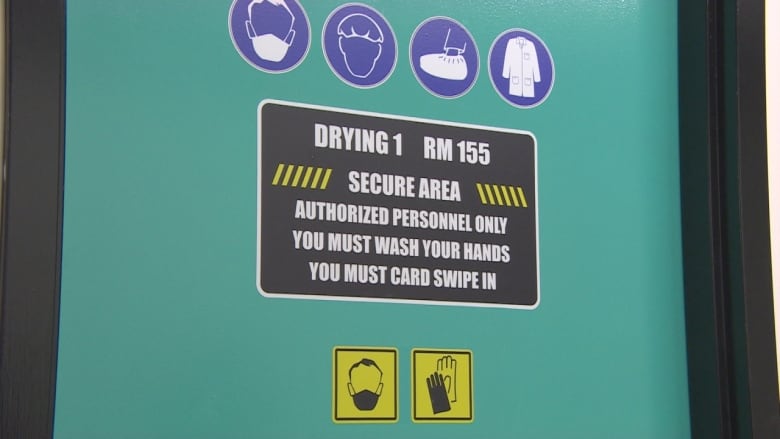Grow big or go home: Manitoba company hopes to cash in on marijuana market
Bonify is the second licenced producer to set up shop in Winnipeg, but sights are set on global market
A Manitoba-based company got the green light from Health Canada earlier this month to become the province's second licensed producer of medical marijuana.
The company hopes to eventually grow into the recreational pot market. Bonify first applied for a medical pot licence in 2014. But in the past three years, a lot has changed including legislation to legalize marijuana in Canada next year.
- Pot legalization bill provides many answers, but leaves some key issues in limbo
- It could be legal to carry up to 30 grams of marijuana under bill to be tabled Thursday
- Cannabis producers line up for recreational sales
"Our vision from the outset was to be a medicinal cannabis provider with the view that the market would be evolving," said Jeff Peitsch, president and CEO of Bonify.
As of March 31, Health Canada received 1,630 licence applications to grow medical marijuana. There are currently only 43 licensed producers in Canada, and just two in Manitoba. Delta 9, the first licensed producer in the province began production in 2014.
- Delta 9, Manitoba medical marijuana facility, offers glimpse inside
- Manitoba's only licenced medical marijuana producer eyes storefront to serve recreational market
During the three years Bonify waited to get approved, it sold hydroponic equipment through a company they acquired in 2015, Canadian Wholesale Hydroponics.
"We've acquired a facility in the heart of Winnipeg," said Peitsch. The location can't be disclosed for security and regulatory reasons.
The 320,000 square-foot inner city warehouse is situated on a number of acres that could potentially be expanded to a million square feet of production space.
The company currently has 19 employees and hopes to add another 40 positions by the end of the year. That number could grow to 150 when all 320,000 square feet become operational.
The facility also has top notch security in place.
More than 200 cameras are used to track movements throughout the building. Swipe card access is required at nearly every turn, and both video and access card records are stored for two years.
Room to grow
Bonify will begin growing plants in the coming months. But before they've even planted a seed, the company is already looking to expand.
Currently Bonify is licensed to grow up to 100 kilograms of dried product per year, but that could grow to 100,000 kilograms once a full expansion takes place.
"We had always envisioned we would be a national and international firm exporting cannabis and cannabis derived products internationally," said Peitsch.

- Manitoba pot law shows ignorance, says cannabis expert
- Manitoba wants to set limit on marijuana consumption in public places
Once production gets underway the company will need Health Canada to give its stamp of approval on the final product, then they will be ready to sell directly to customers.
"They will require physician prescription at this point in time, we will then vet that prescription and we would sell directly to them from coast to coast to coast," said Peitsch.
Setting the standards
Peitsch says even with legalization of marijuana coming and the potential for an expanding market, the goal of the company was always to be industry innovators with a focus on developing new technologies.

"Our first, second and third priority will always be those patients that require access to quality-assured cannabis," he said.
Growers such as Bonify could potentially help set future standards for those looking to enter the recreational market.
- Canadian? Curious about cannabis? Here are some answers
- Legal marijuana plan needs public health focus: Ottawa psychiatrist
"There will certainly be a great deal of regulation around the legalization and there are going to be a number of challenges, and we are working very closely with the federal government now," said Peitsch.

"This will be the first of it's kind, certainly in the province, in terms of complexity and scale, but beyond that, the sands in the industry do shift, so it's about anticipating the future of the industry," he said.
Peitsch says the company name, Bonify ,means 'to make better.'
"It's about ensuring that we are growing the highest standard product [where] the product is identified, the potencies are known, the purity of the product is ensured. It would certainly meet and exceed all of Health Canada's standards," he said.